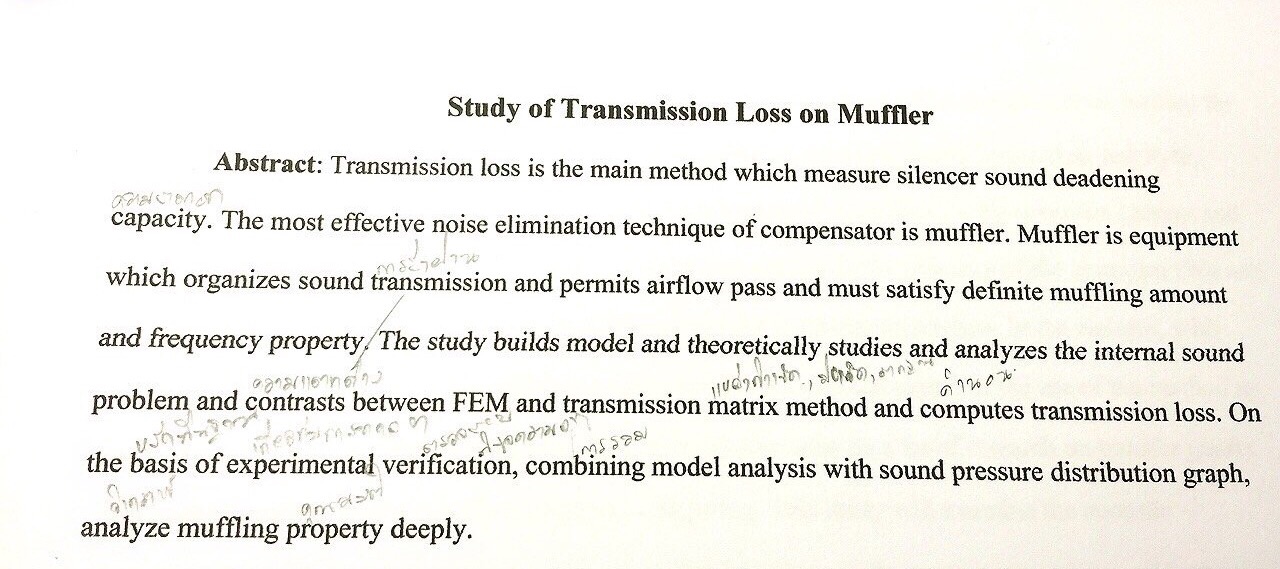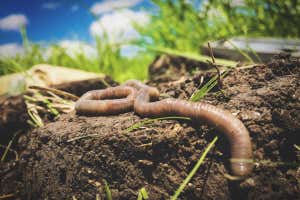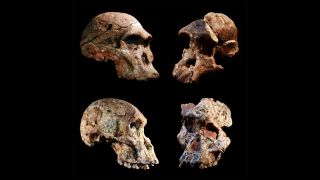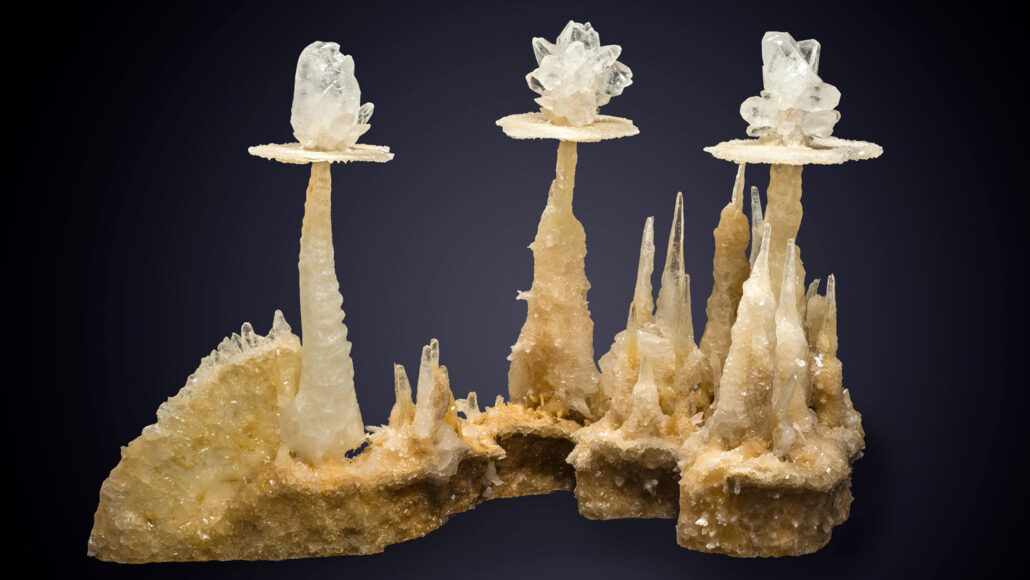คุณกำลังมองหาข้อมูล บทความ ความรู้ในหัวข้อ บทความ ภาษา อังกฤษ พร้อม แปล เกี่ยว กับ วิทยาศา บน Google คุณไม่พบข้อมูลที่ต้องการ! ต่อไปนี้คือเนื้อหาที่ดีที่สุดที่รวบรวมและเรียบเรียงโดยทีม Tmdl.edu.vn พร้อมกับหัวข้อที่เกี่ยวข้องอื่นๆ เช่น:: บทความภาษาอังกฤษ เกี่ยวกับ วิทยาศาสตร์ สั้น ๆ, บทความทางวิทยาศาสตร์ ภาษาอังกฤษ, บทความวิทยาศาสตร์ สั้นๆ, บทความ ภาษาอังกฤษ เกี่ยวกับ ชีววิทยา, บทความวิจัย วิทยาศาสตร์ pdf, งาน วิจัย ภาษาอังกฤษ เกี่ยว กับ วิทยาศาสตร์, วิทยาศาสตร์ ภาษาอังกฤษ พร้อม แปล, วิจัย อังกฤษ วิทยาศาสตร์.

บทความวิจัยภาษาอังกฤษ พร้อมแปล 1
Alien earthworms have spread to almost all parts of North America.
This post: Top 16 บทความภาษาอังกฤษ เกี่ยวกับ วิทยาศาสตร์ สั้น ๆ
As North Americans have busied themselves about their various concerns, unseen invaders have slowly been amassing beneath their feet. There are now more alien species than native species of earthworms in most places on the continent, a study has found. “Our results reveal that the entire continent is being invaded by non-native earthworms through a variety of pathways,” Jérôme Mathieu at the Sorbonne University in Paris and his colleagues write. “These aliens… represent a major …

ในขณะที่ชาวอเมริกาเหนือกำลังยุ่งอยู่กับข้อกังวลต่างๆ ของพวกเขา ผู้บุกรุกที่มองไม่เห็นได้รวมตัวกันอย่างช้าๆ ใต้เท้าของพวกเขา ขณะนี้มีสายพันธุ์ต่างดาวมากกว่าไส้เดือนพื้นเมืองในพื้นที่ส่วนใหญ่ในทวีปนี้ จากการศึกษาพบว่า Jérôme Mathieu จากมหาวิทยาลัยซอร์บอนในปารีสและเพื่อนร่วมงานเขียนว่า “ผลการวิจัยของเราเผยให้เห็นว่าทั่วทั้งทวีปกำลังถูกรุกรานโดยไส้เดือนที่ไม่ใช่พื้นเมืองผ่านเส้นทางที่หลากหลาย” “เอเลี่ยนเหล่านี้…เป็นตัวแทนของพันตรี…
บทความวิทยาศาสตร์ ภาษาอังกฤษ 2
South African fossils may rewrite history of human evolution
Four different Australopithecus crania that were found in the Sterkfontein caves, South Africa. The Sterkfontein cave fill containing this and other Australopithecus fossils was dated to 3.4 to 3.6 million years ago, far older than previously thought. The new date overturns the long-held concept that South African Australopithecus is a younger offshoot of East African Australopithecus afarensis. (Image credit: Jason Heaton and Ronald Clarke, in cooperation with the Ditsong Museum of Natural History)
Ancient human-like fossils in South Africa may be more than a million years older than previously thought, which raises the odds that the species they came from gave rise to humans, a new study finds.

The new date could rewrite a few key stages in the history of human evolution. That’s because the finding suggests these fossils belong to a species that may predate the iconic 3.2-million-year-old “Lucy” fossil. Lucy’s species was long thought to potentially have been the prime contender for the direct ancestor of humans.
Homo sapiens is the only surviving member of the human lineage, the genus Homo. Previous research suggested that the leading candidate for the precursors of Homo may be the genus Australopithecus, which lived about 4.1 million to 2.9 million years ago.
Australopithecus crania สี่แบบที่พบในถ้ำ Sterkfontein ประเทศแอฟริกาใต้ ถ้ำ Sterkfontein เต็มไปด้วยฟอสซิล Australopithecus อื่น ๆ มีอายุ 3.4 ถึง 3.6 ล้านปีก่อนซึ่งเก่ากว่าที่เคยคิดไว้มาก วันที่ใหม่พลิกแนวคิดที่มีมายาวนานว่า Australopithecus ของแอฟริกาใต้เป็นหน่อที่อายุน้อยกว่าของ Australopithecus afarensis ของแอฟริกาตะวันออก (เครดิตรูปภาพ: Jason Heaton และ Ronald Clarke โดยความร่วมมือกับพิพิธภัณฑ์ประวัติศาสตร์ธรรมชาติดิซซอง)
ซากดึกดำบรรพ์คล้ายมนุษย์โบราณในแอฟริกาใต้อาจเก่ากว่าที่เคยคิดไว้มากกว่าหนึ่งล้านปี ซึ่งเพิ่มโอกาสที่สายพันธุ์ที่พวกมันมาจากจะก่อให้เกิดมนุษย์
วันที่ใหม่สามารถเขียนขั้นตอนสำคัญสองสามขั้นตอนใหม่ในประวัติศาสตร์วิวัฒนาการของมนุษย์ นั่นเป็นเพราะการค้นพบนี้ชี้ให้เห็นว่าฟอสซิลเหล่านี้เป็นของสายพันธุ์ที่อาจเกิดก่อนฟอสซิล “ลูซี่” อันเป็นสัญลักษณ์อายุ 3.2 ล้านปี สายพันธุ์ของลูซี่มีความคิดมานานแล้วว่าอาจเป็นคู่แข่งสำคัญสำหรับบรรพบุรุษโดยตรงของมนุษย์
Homo sapiens เป็นสมาชิกเพียงคนเดียวที่รอดชีวิตจากเชื้อสายมนุษย์ สกุล Homo การวิจัยก่อนหน้านี้ชี้ให้เห็นว่าผู้สมัครชั้นนำสำหรับบรรพบุรุษของ Homo อาจเป็นสกุล Australopithecus ซึ่งอาศัยอยู่ประมาณ 4.1 ล้านถึง 2.9 ล้านปีก่อน
บทความภาษาอังกฤษ พร้อมแปล 3
A new look at the ‘mineral kingdom’ may transform how we search for life
For the first time, scientists have cataloged every different way that every known mineral can form and put all of that information in one place. This collection of mineral origin stories hints that Earth could have harbored life earlier than previously thought, quantifies the importance of water as the most transformative ingredient in geology, and may change how researchers look for signs of life and water on other planets.
“This is just going to be an explosion,” says Robert Hazen, a mineralogist and astrobiologist at the Carnegie Institution for Science in Washington, D.C. “You can ask a thousand questions now that we couldn’t have answered before.”

For over 100 years, scientists have defined minerals in terms of “what,” focusing on their structure and chemical makeup. But that can make for an incomplete picture. For example, though all diamonds are a kind of crystalline carbon, three different diamonds might tell three different stories, Hazen says. One could have formed 5 billion years ago in a distant star, another may have been born in a meteorite impact, and a third could have been baked deep below the Earth’s crust.
For the first time, scientists have cataloged every different way that every known mineral can form and put all of that information in one place. This collection of mineral origin stories hints that Earth could have harbored life earlier than previously thought, quantifies the importance of water as the most transformative ingredient in geology, and may change how researchers look for signs of life and water on other planets.
“This is just going to be an explosion,” says Robert Hazen, a mineralogist and astrobiologist at the Carnegie Institution for Science in Washington, D.C. “You can ask a thousand questions now that we couldn’t have answered before.”
For over 100 years, scientists have defined minerals in terms of “what,” focusing on their structure and chemical makeup. But that can make for an incomplete picture. For example, though all diamonds are a kind of crystalline carbon, three different diamonds might tell three different stories, Hazen says. One could have formed 5 billion years ago in a distant star, another may have been born in a meteorite impact, and a third could have been baked deep below the Earth’s crust.
วิดีโอสอนตั้ง บทความภาษาอังกฤษ เกี่ยวกับ วิทยาศาสตร์ สั้น ๆ
Source: Mamnonanhduongvt.edu.vn
Category: Blog